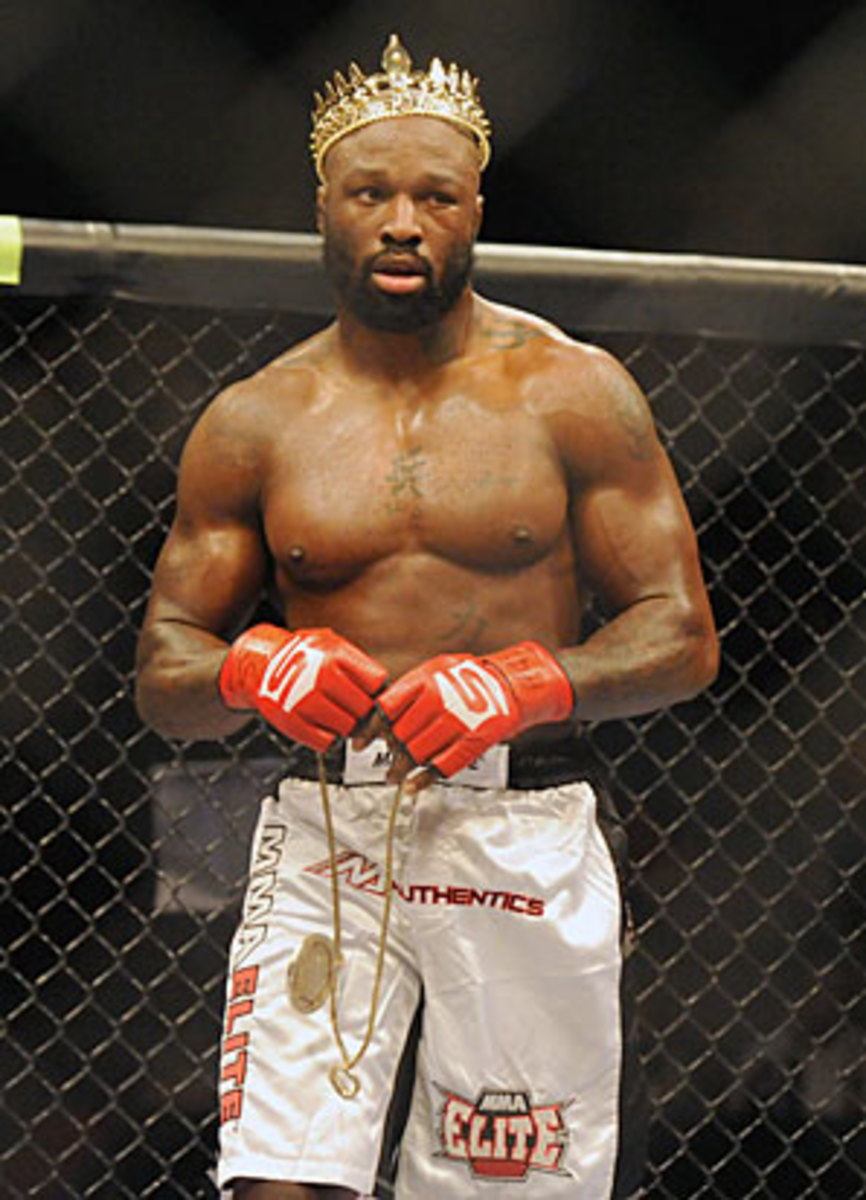Underpromoted Strikeforce Heavyweight Grand Prix plods on
If you thought that attendance was sparse at Strikeforce's latest Heavyweight Grand Prix event in Cincinnati simply because so many locals opted to stay home and watch it on TV instead, think again.
An average of 274,000 viewers watched the semifinal round of the tournament on Showtime, according to MMAJunkie.com. In case you're wondering, yeah, that's bad. Terrible even.
It's the second-worst ratings showing of any major Strikeforce card on Showtime, edging out only the Strikeforce: Los Angeles show that premiered on a Wednesday night with a meaningless catchweight bout between Robbie Lawler and "Babalu" Sobral as its main event.
That puts this event -- which was, for the record, maybe the best full fight card Strikeforce has ever put on -- behind such forgettable events as Strikeforce: Evolution and Strikeforce: Henderson vs. Babalu II in the ratings.
To put it in terms Showtime loyalists can understand, we're talking sub-United States of Tara ratings here. If this were a serial drama, it'd be canceled by now.
So why did such an excellent fight card do so poorly in attendance and ratings, the metrics that really matter in this business? You could argue that college football hurt its numbers, that Michigan and Notre Dame sucked away all the sports fans and left Josh Barnett and Daniel Cormier to toil in obscurity.
You could also blame Showtime, which pushed the start time for the broadcast back to 10:35 p.m. ET so that it could air a documentary about Paul McCartney's 9/11 benefit concert -- a project that Showtime employees seemed far more interested in, judging by the reverent tones in their voices whenever they spoke of it on fight week in Cincinnati, which was often.
And sure, both might be contributing factors, but in the end it comes down to a failure to promote. There was no one out there reminding fans both locally and nationally that there was a pretty major MMA event with some seriously great fights on Saturday night.
Zuffa -- parent company to both the UFC and Strikeforce -- didn't bother pushing it much. And why would it? Zuffa's main concern is the UFC, which had its own problems last week, what with Nick Diaz no-showing a couple press conferences and then, in typical Nick Diaz fashion, blaming everyone but himself when he got pulled from his title fight with UFC welterweight champ Georges St-Pierre.
While Zuffa seems content to let Strikeforce play itself out, it doesn't seem to have any interest in helping it prosper. Maybe that's because it doesn't want to confuse fans by promoting two different brand names. Maybe it simply wants Strikeforce to flounder on Showtime so as to speed up its demise and hasten the process of absorbing the better fighters into the UFC.
Whatever the reason, the big losers in this little game are the fighters. Light heavyweight Mo Lawal was the only one to complain about the lack of press and promotion in public (though, in fairness, Lawal would have us believe that he's been overlooked and underappreciated his entire life), but he wasn't the only one who noticed it.
Whether there are 20,000 fans in the arena or 10, the stakes are always just as high for the guys who are trying to relocate the bones in one another's faces.
The good news for them is, they're still getting paid as if people are watching. Every semifinalist in the heavyweight Grand Prix edged into six figures with their official reported payouts, with Barnett topping the list at $150,000 for his first-round submission of Sergei Kharitonov.
That's good money for MMA fighters, especially ones whom almost no one is watching. Sure, they probably take a hit in sponsor pay (what company wants to pay the Zuffa sponsor tax to get its logo seen by a Bellator-sized TV audience?), but that's far better money than they'd make for any other non-UFC organization right now.
But when you think about it in those terms, isn't that just one more reason to put a little effort into Strikeforce while it's still around? As long as you've got big name fighters pulling in big name fighter money, shouldn't everyone involved do their best to get a decent return on their investment? If Zuffa knows it will probably end up with at least a couple of the Grand Prix heavyweights on the UFC roster when it's all said and done, why not give fans a head start on finding out who they are and what they're capable of?
Those are questions Zuffa doesn't seem interested in answering for the moment, and so Strikeforce continues on. The organization may not be headed for a better place, but at least some of its fighters are.






